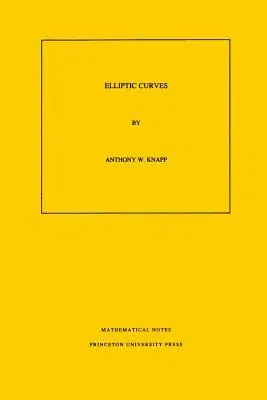Anthony W Knapp
(Author)Elliptic Curves. (Mn-40), Volume 40Paperback, 25 October 1992

Qty
1
Turbo
Ships in 2 - 3 days
In Stock
Free Delivery
Cash on Delivery
15 Days
Free Returns
Secure Checkout

Part of Series
Mathematical Notes
Part of Series
Mathematical Notes, 40
Part of Series
Mathematical Notes Mathematical Notes
Print Length
448 pages
Language
English
Publisher
Princeton University Press
Date Published
25 Oct 1992
ISBN-10
0691085595
ISBN-13
9780691085593
Description
Product Details
Author:
Book Format:
Paperback
Country of Origin:
US
Date Published:
25 October 1992
Dimensions:
22.99 x
15.29 x
2.77 cm
ISBN-10:
0691085595
ISBN-13:
9780691085593
Language:
English
Location:
Princeton
Pages:
448
Publisher:
Weight:
730.28 gm